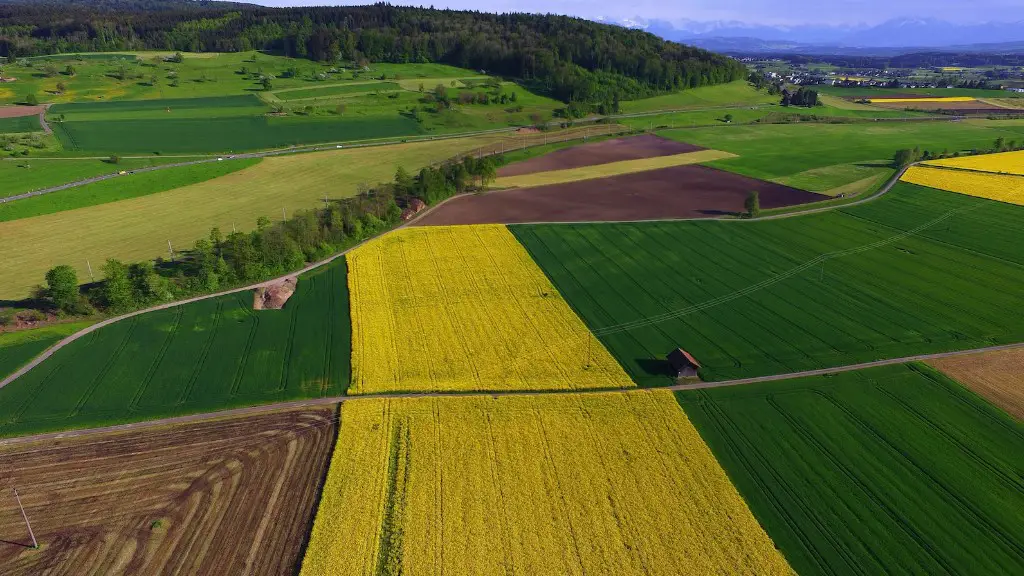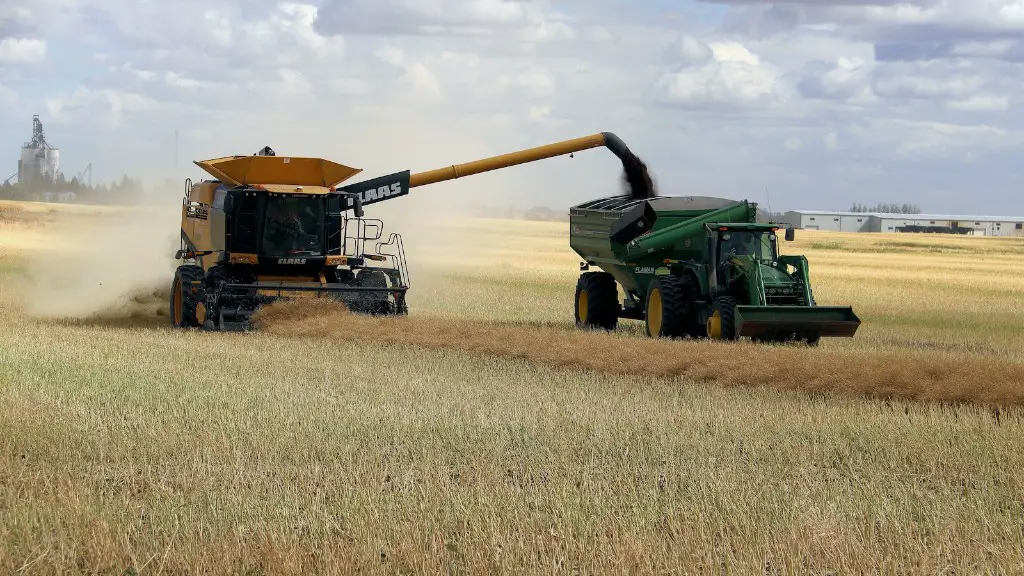Ammonia is an important agricultural fertilizer because it is a source of nitrogen, which is essential for plant growth. Nitrogen is a key ingredient in chlorophyll, the green pigment in plants that is necessary for photosynthesis. Ammonia can be applied directly to soil or converted into other nitrogen-containing compounds, such as urea or ammonium nitrate, which are also used as agricultural fertilizers.
Ammonia is commonly used as an agricultural fertilizer because it is a source of nitrogen, which is an essential plant nutrient. Ammonia can also be used in other agricultural applications, such as controlling weeds and pests.
What crops use ammonia?
Ammonia is extremely effective at delivering nitrogen to the soil to improve crop yields. Some crops require higher nitrogen than others, including wheat, corn and soybeans. Ammonia is also a key ingredient in many fertilizers.
Ammonia is a very effective fertilizer for plants, as it has a high concentration of nitrogen. However, it must be handled with care, as it is a hazardous substance. When applying ammonia to soil, be sure to wear protective clothing and take other safety precautions.
Does ammonia increase plant growth
Ammonium is a major component of nitrogen fertilizer and, at low concentration, it is a preferential nitrogen source and promotes growth of most plant species. Ammonium is also a major source of nitrogen for many soil bacteria and fungi.
When working with ammonia, it is important to be aware of the dangers of this chemical. Ammonia is a highly corrosive substance that can cause severe burns and tissue damage. Inhaling ammonia can also be dangerous, as it can cause dehydration and cell destruction. If you come into contact with ammonia, be sure to immediately flush the area with water and seek medical attention if necessary.
Does ammonia make grass greener?
Ammonium sulfate is a common fertilizer for lawns. It provides nitrogen and sulfur, which are essential nutrients for plants. Ammonium sulfate is relatively inexpensive and helps lawns green up quickly. However, too much ammonium sulfate can cause an undesirable amount of growth.
Ammonia is a chemical compound with the formula NH3. It is a colourless gas with a strong smell. Ammonia is used in many industries, including refrigeration, water purification, the manufacture of plastics, explosives, textiles, pesticides, dyes and other chemicals.
Will ammonia keep bugs away?
Ammonia has a strong, pungent odor that is easily detectable by humans. However, many insects are attracted to the smell of ammonia. Now, researchers at the University of Connecticut have discovered how insects are able to smell ammonia, which could lead to better ways to repel them.
The sense of smell is enormously important for insects, as it helps them locate food and mates. Ammonia is a common ingredient in many smells, such as urine, sweat, and rotting meat. Therefore, it is not surprising that insects are attracted to it.
However, until now, it was not known how insects were able to smell ammonia. The UConn researchers have discovered that insects have a receptor that is specifically tuned to the smell of ammonia. This receptor is located in the antennae, which are the long, thin appendages that protrude from an insect’s head.
This discovery could lead to new ways to repel insects. Currently, the main way to repel them is to use chemicals that mask their ability to smell. However, these chemicals can be harmful to the environment. If scientists can find a way to target the receptor that detects ammonia, they may be able to develop more environmentally-friendly ways to keep insects at
Ammonia is a great source of nitrogen for your grass and can help it to grow quickly and healthily. However, it also has the potential to kill grass if the wrong type is applied or it’s not used properly. This being said, the obvious answer is yes – ammonia can kill the grass. In fact, it can do this quite easily if you aren’t careful. If you’re going to use ammonia on your grass, be sure to do your research first and be very careful in its application.
What does ammonia do to soil
Ammonia is essential for the production of nitrogen fertilizers, which are key to sustaining agricultural productivity. Without nitrogen fertilizers, crops would not be able to grow properly and yield the food that we rely on. Ammonia is also an important industrial chemical, used in the production of a wide range of products, from plastics to textiles.
Ammonia is a caustic substance that can cause serious health effects if inhaled in high concentrations. Exposure to high concentrations of ammonia in air can cause burning of the eyes, nose, throat and respiratory tract, and can lead to blindness, lung damage or death. Inhalation of lower concentrations of ammonia can cause coughing, and nose and throat irritation.Ammonia is a colourless gas with a strong, pungent odour. It is used in a variety of commercial and industrial processes, and is also found naturally in the environment. Ammonia is a highly reactive substance and can be dangerous if not used properly.
How do you add ammonia to soil?
Household ammonia can be used as a lawn fertilizer by adding it to a 1-gallon container of water. Pour the mixture into a 20-gallon hose-end sprayer, and apply it to your entire lawn early in the morning.
Ammonia is a colorless gas with a strong, characteristic odor. Ammonia is found in many household and industrial cleaning products. It is also a by-product of animal waste. Ammonia is a major contributor to the formation of smog.
At high concentrations, ammonia is dangerous to human health. Short-term exposure to high concentrations of ammonia can cause irritation to the eyes, nose, throat, and lungs. High concentrations can also cause coughing, choking, and burns. Long-term exposure to lower concentrations of ammonia can also cause health problems, such as bronchitis, pneumonia, and kidney damage.
Ammonia is also harmful to the environment. It can contribute to the formation of acid rain, and it can be toxic to plants and animals.
How long does ammonia last in soil
Nitrification is a process by which ammonia is converted to nitrate by bacteria. This process is important in the cycling of nitrogen in the environment. Nitrification can occur in soil, water, and air. In soil, nitrification is important in the process of plant growth. Nitrification can also be used to control pollution.
Anhydrous ammonia is a very popular fertilizer because it is high in nitrogen and easy to apply. However, there are some disadvantages to using it. One is that it can be difficult to evenly distribute the fertilizer, leading to losses in irrigation water. Additionally, it can’t be used with sprinklers, and there is a potential for loss when injecting it into dry soils. Another downside is that it can be toxic to plants, and it is also potentially hazardous to human eyesight.
Is ammonia toxic in soil?
But most ammonia is produced by bacteria in water and soil as an end product of plant and animal waste decomposition. It is found in relatively low nontoxic concentrations in soil, air, and water and provides a source of nitrogen for plants.
Weed control is important for a neat and healthy garden. The best time to spray weeds is early in the morning or late in the day, when the sun is not at its strongest. You will need to wear protective clothing, including gloves, a face mask and goggles, to avoid getting the solution on your skin or in your eyes.
Can Epsom salt help grass grow
Epsom salt is a great fertilizer for flowers or vegetables. If you want your front yard turf to look lush and stay healthy all year long, spray the lawn with an Epsom Salt solution once a month. This treatment helps grass seeds germinate and develop into strong blades.
If you’re looking for a way to clean stains on your concrete driveway, you can try using ammonia. Just be sure to conduct a spot test in an inconspicuous spot first to make sure it won’t harm any sealants. You can dilute the ammonia to make it more safe to use. Just don’t use an ammonia solution on polished or stamped concrete driveways or floors.
Final Words
Ammonia is commonly used in agriculture as a fertilizer because it is a source of nitrogen. Nitrogen is an essential nutrient for plants, and ammonium nitrate is one of the most common nitrogen fertilizers. Ammonia can also be used to manufacture other nitrogen-based fertilizers, such as urea and ammonium sulfate.
Ammonia is used in agriculture as a nitrogen-rich fertilizer. Ammonia is also used in animal husbandry as a way to increase the protein content of cattle feed. When used in agriculture, ammonia can help to improve crop yields and make plants more resilient to pests and diseases.





